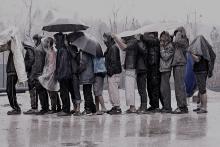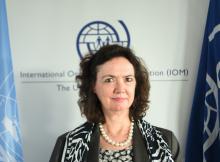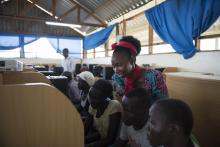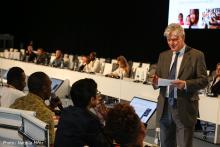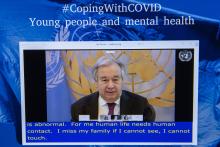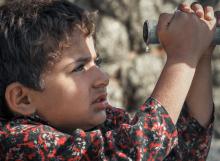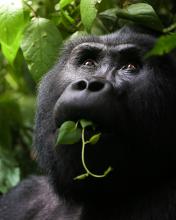Increasing Youth Participation in Climate Action
Young people, who constitute the majority of the population in many countries, are becoming a driving force in pursuing a low-carbon and climate-resilient future.
Reimagining Human Mobility in a Post-COVID-19 World
No phenomenon has been as affected by humanity’s reaction to COVID-19 as migration. Simply put, humans are the main vector for the transmission of the virus, so the mobility aspects of our response had to be factored in from day one.
The Case for Connectivity, the New Human Right
This year’s Human Rights Day theme focuses on the need and opportunity to build back better in the wake of the pandemic by ensuring that human rights are central to recovery efforts. And make no mistake about it, digital connectivity should be a human right.
Do People Still Care About Human Rights?
The Universal Declaration of Human Rights, adopted on 10 December 1948, inspired peoples across the world and laid the foundation for governance and institutional reforms, for progressive, people centred legislation and education that reverberates from generation to generation.
The Impact of COVID-19 on Women
Among other measures to address the impact of the COVID-19 pandemic on women, the United Nations could develop gender-sensitive monitoring and impact checklists to assist countries with follow-up and assessment of their achievements in all sectors during the crisis.
Media and Information Literacy in an Age of Uncertainty
In order to protect democracy, the transition to a digital society and economy must be accompanied by a media and information literacy revolution.
Making Industrialization in Africa Sustainable
Industrial development in Africa needs to be inclusive and sustainable: inclusive so that all sectors of society can participate and benefit from industrialization, and sustainable so that the environment does not suffer.
Addressing the Impact of the COVID-19 Pandemic on Violence Against Women and Girls
Violence against women and girls was a pandemic long before the outbreak of COVID-19. The underlying causes are not the virus itself or the resulting economic crisis, but rather an imbalance of power and control.
COVID-19 and the Need for Action on Mental Health
Not only would failing to address the mental health impact of the pandemic potentially undo years of work and effort to improve access to and the quality of mental health services, it also creates the possibility of a mental health epidemic that could impact generations to come.
We All Must Take Action
As the United Nations celebrates its 75th Anniversary this year, which has been marked by a global pandemic and global fear, we are all called to renew our sense of solidarity and hope.



